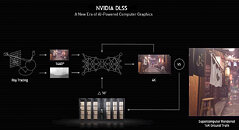Post Trauma Out Now on PC & Current-gen Consoles
Hello everyone, after three years of development, I'm thrilled, excited (and a little bit scared) to announce that Post Trauma is now available on Steam (PC), PlayStation 5 and Xbox Series X|S. And if you're on Steam, you can also pick up an exclusive Supporter Edition which includes the game's full official soundtrack from Myuu alongside the base game. On behalf of myself and Red Soul Games, I want to thank you for your passion, your patience and support of Post Trauma. Whether you've been with me since the beginning or you're just joining us here in The Gloom, I'm incredibly grateful and can't wait to hear what you think of the game.
This development journey has been an incredible ride, from the initial demo on Itch.io, to announcing a partnership with Raw Fury and re-announcing the game at The Game Awards, demoing at Gamescom twice and seeing the game be exhibited all around the world, from Tokyo Game Show, to being hosted by PlayStation at BitSummit and taking part in Fantastic Fest in Texas. Our small team has accomplished so much and despite a few bumps in the road, we're incredibly proud of what we've been able to achieve. We hope you feel the same.
This development journey has been an incredible ride, from the initial demo on Itch.io, to announcing a partnership with Raw Fury and re-announcing the game at The Game Awards, demoing at Gamescom twice and seeing the game be exhibited all around the world, from Tokyo Game Show, to being hosted by PlayStation at BitSummit and taking part in Fantastic Fest in Texas. Our small team has accomplished so much and despite a few bumps in the road, we're incredibly proud of what we've been able to achieve. We hope you feel the same.



















































































